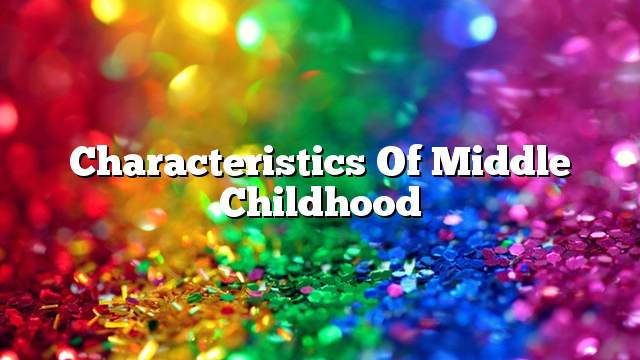Middle childhood
Middle childhood is defined as the age range between the ages of 6 and 11, and it is considered an important age. It is a period of transition for the child between the first stages of childhood and adolescence and adolescence after the age of eleven; after the end of the middle childhood which we will mention the most important features in this article .
Characteristics of middle childhood
- Organic growth: There are developments in the physical aspect as the bodies of children change in this period, and the most important manifestations of those changes:
- Weight gain: Children weigh more than three or four kilograms, about six centimeters tall each year.
- The fall of the teeth, and the beginning of the growth of permanent teeth by four lamps annually.
- The growth of lymph nodes, and the appearance of tonsils more clearly than in the first childhood.
- Increased muscle strength, so the child can practice many types of difficult movements during this stage, especially sports such as football, gymnastics and other motor practices.
- Lack of access to puberty or maturation of sexual organs in this period, but girls reach early during the middle childhood in some countries characterized by high temperature.
- Linguistic Growth: Where he begins at this stage to form his own vocabulary, and rely on a particular form and a special way to speak with others, and the advantage of their language at this stage deliberately manipulated words, such as asking your child at this stage Did your homework? Vijibek, for example, likes to eat fried potatoes, besides mixing the colloquial and the philistine; to try to draw the attention of others to his abilities to speak, and at this stage deliberately talk to whispers among them; to suggest to others the confidentiality of the subject, or that there is something to talk about .
- Cognitive Growth: Where the children at the age of six begin to think about the reality, and logical thinking arranged in order, so it is difficult for some parents to inspire them, for example, that the monster will appear to them if they did not eat breakfast full, in addition to their ability and readiness to learn become bigger and clearer; Their knowledge is open.
- Social growth The child becomes more dependent on himself to act and think, as this stage gives him the possibility to act and partial thinking without direct and direct guidance from the parents when he misses About home going to school, or to play with friends and neighbors’ children.
